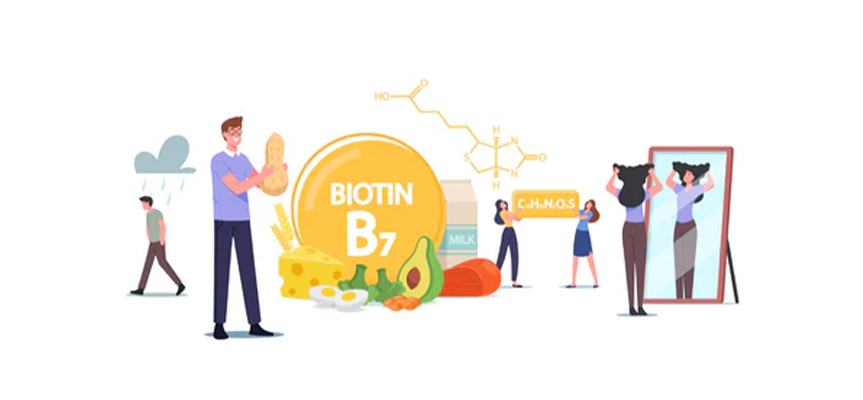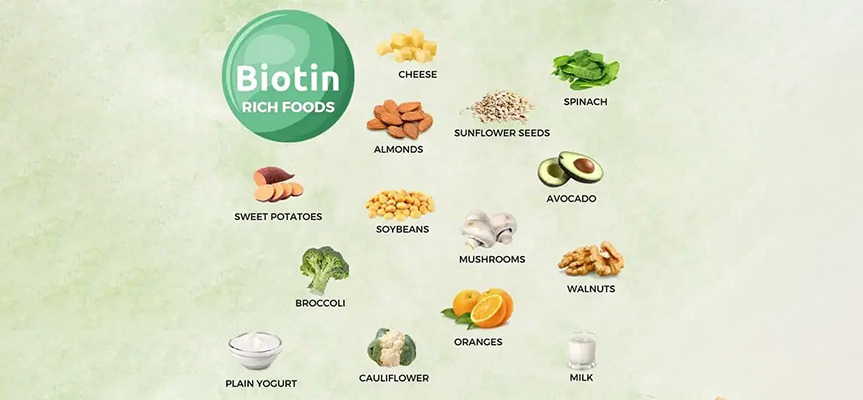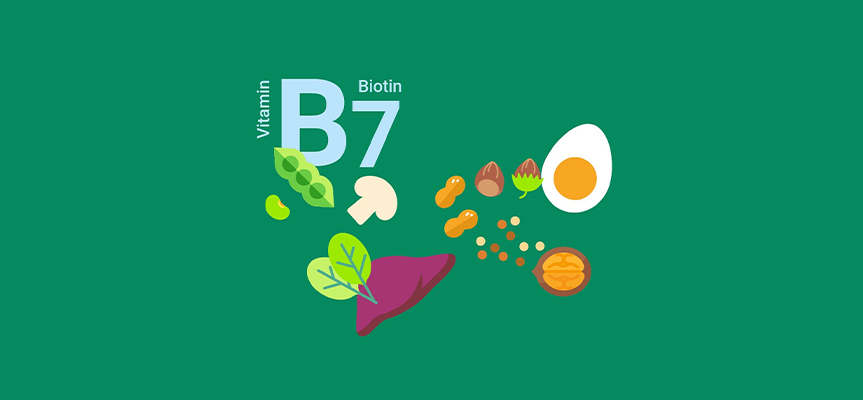Biotin, also known as Vitamin H, is one of the B-complex vitamins that plays a crucial role in several body functions, including metabolism and energy production. The word “biotin” is derived from the ancient Greek word “biotos,” meaning life. B vitamins, particularly biotin, support the health of the skin, hair, eyes, liver, and nervous system. Biotin is also a vital nutrient during pregnancy, as it is essential for the proper development of the fetus. Most individuals get the biotin they need by following a healthy, well-balanced diet. However, there are many claims that consuming higher amounts of biotin can regulate blood sugar, enhance hair, skin, and nails, and help pregnant mothers have healthier babies.
Biotin is an essential nutrient and plays a key role in converting carbohydrates, fats, and proteins into energy. It also supports the optimal functioning of body cells. When it comes to hair, skin, and nail health, biotin is considered a hero. This is likely because biotin deficiency can lead to brittle nails, hair loss, and red rashes or peeling skin. However, it is important to note that these symptoms are not always due to a biotin deficiency; iron deficiency or thyroid issues may also cause these problems. Therefore, if you notice sudden changes in your hair, skin, or nails, it is important to consult a doctor. Avoid self-medicating with biotin supplements without understanding the underlying cause.

Recommended Daily Biotin Supplement Intake
A daily intake of 30 to 100 micrograms of biotin is commonly recommended for adolescents and adults. Since biotin is water-soluble, it is not stored in the body, and any excess is easily excreted. Most people tolerate biotin supplements well, but some may experience mild side effects such as nausea and digestive issues. There is no known toxicity associated with excessive biotin consumption. However, high doses of biotin supplements can interfere with certain medical test results, so it is important to inform your doctor if you are taking them. Never exceed the recommended dosage indicated on the packaging, and if you experience any side effects, discontinue using it.
Biotin Supplementation and Diabetes
Some studies suggest that individuals with type 2 diabetes may benefit from taking biotin supplements to help regulate blood glucose levels. According to animal studies, biotin may also help prevent kidney damage in individuals with insulin-dependent type 1 diabetes. However, further research is needed in this area.
Biotin Supplements for Healthy Hair, Skin, and Nails
Biotin deficiency is rare, but since individuals with a deficiency often show symptoms such as hair loss or red, flaky rashes, some experts recommend increasing biotin intake to address these issues.
Biotin Supplements and Fetal Development
Although rare, pregnant women may experience biotin deficiency. To support fetal health, it is recommended to use prenatal vitamins that contain biotin and folic acid. However, high doses of biotin can be dangerous for the baby, so biotin supplementation should only be done under supervision.

Natural Sources of Biotin
Biotin is naturally found in foods such as egg yolks; liver; nuts like almonds, peanuts, and walnuts; nut butters; soybeans and other legumes; whole grains; cauliflower; bananas; and mushrooms. Since food processing methods like cooking can reduce the effectiveness of biotin, raw or minimally processed foods contain more active biotin. The best approach is always to obtain nutrients from natural sources. If adequate biotin is not obtained from food, health advisors may recommend supplements. The best way to maintain optimal health is to follow a balanced, healthy diet that includes a variety of fruits, vegetables, proteins, and minimally processed or unprocessed foods. Eating healthy foods and staying well-hydrated contributes to achieving your best self.

